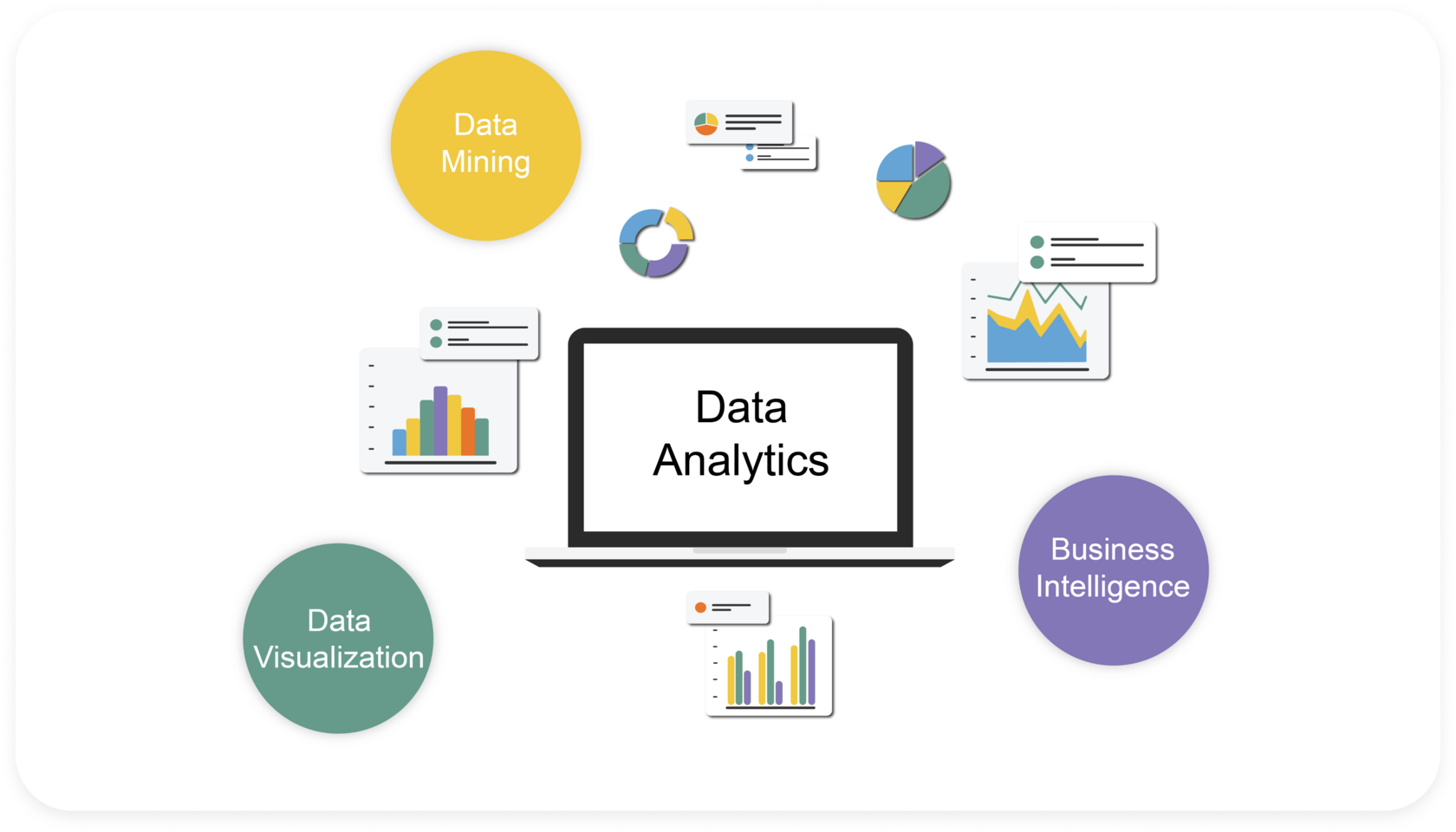Drive Growth and Advancement With Smart Analytics Applications
Wiki Article
Take Full Advantage Of Growth: Just How Analytics Drive Better Techniques
In today's data-driven landscape, organizations progressively identify the essential role of analytics fit efficient growth approaches. By taking advantage of data insights, companies can refine their functional approaches, prepare for market changes, and boost consumer engagement. Nonetheless, the challenge exists not only in collecting data but in successfully interpreting it to drive concrete end results. As we discover the key advantages and approaches connected with analytics, a vital inquiry arises: exactly how can companies ensure they are leveraging these insights to unlock their complete possibility? The solution may redefine the future of calculated preparation.Recognizing Information Analytics
Information analytics is a methodical computational evaluation of information that makes it possible for companies to reveal meaningful patterns and insights. This process encompasses a variety of techniques, including statistical analysis, predictive modeling, and information mining, which jointly aim to transform raw data right into workable details - Analytics. By utilizing these techniques, companies can make enlightened choices that are rooted in empirical evidence rather than instinct aloneThe foundation of data analytics lies in its ability to take care of large amounts of information from varied sources. This consists of organized information, such as databases, and disorganized information, including social media interactions and client responses. Through using specialized software and devices, analysts can extract and process this information effectively, recognizing fads and connections that may not be promptly obvious.
Understanding information analytics additionally includes recognizing the importance of information high quality and honesty. Dependable and exact data is crucial for meaningful evaluation; thus, companies should implement robust information administration methods. Furthermore, the iterative nature of analytics allows for constant improvement and enhancement of approaches, making sure that companies continue to be active in the face of altering market dynamics and customer behavior.
Trick Advantages of Analytics

Among the crucial advantages of analytics is its capacity to give actionable understandings. Organizations can quickly analyze large amounts of data, uncovering patterns that may not be instantly obvious. This assists in expecting market shifts and adapting strategies accordingly. In addition, analytics cultivates a society of evidence-based decision-making, minimizing dependence on intuition and guesswork.
One more significant benefit is boosted consumer understanding. Analytics devices allow companies to segment their target market, track consumer behavior, and individualize advertising and marketing efforts. This targeted approach not just enhances customer involvement yet likewise drives higher conversion prices.

Implementing Analytics Approaches
To fully realize the advantages of analytics, companies must embrace organized approaches for implementation. This starts with plainly defining objectives that line up with more comprehensive business goals. By developing details, measurable outcomes, organizations can concentrate their analytics initiatives on locations that yield the highest roi.Following, companies need to focus on data governance to guarantee the stability and protection of the information being analyzed. This involves establishing protocols for data collection, storage, and access while adhering to appropriate guidelines. Making sure high-quality data is essential for producing significant insights.
Additionally, promoting a culture of data-driven decision-making is vital. This needs training staff members to analyze analytics findings and encouraging collaboration throughout divisions. They are much more likely to integrate understandings right into their daily operations. when groups recognize the worth of analytics.
Lastly, companies need to frequently evaluate and improve their analytics methods. The landscape of data and technology is continually advancing, and remaining adaptable will enable organizations to leverage brand-new tools and methods effectively. By applying these organized techniques, companies can make best use of the effect of their analytics initiatives and drive lasting growth.
Devices for Efficient Evaluation
Efficient analysis relies upon a variety of devices that help with the removal of insights from information - Analytics. These tools can vary from simple spread sheet applications to sophisticated maker learning systems, each serving a special purpose in the analytical procedureInformation visualization software application, such as Tableau and Power BI, plays a crucial function in changing complex datasets into easy to understand visual representations. These tools make it possible for experts to identify fads and patterns quickly, enabling more educated decision-making.
Analytical evaluation software, like R and SAS, provides sophisticated capacities for performing in-depth analyses, including regression, hypothesis testing, and predictive modeling - Analytics. These functions equip companies to attract purposeful verdicts from their information, recognizing potential opportunities and risks
Additionally, database administration systems such as SQL and NoSQL databases offer the needed facilities for storing and querying large quantities of data efficiently. They make certain that information is arranged and accessible for evaluation.
Last but not least, service knowledge systems incorporate different data sources, giving a detailed sight of organizational performance. By utilizing these devices efficiently, companies can Our site improve their Clicking Here analytical capacities, allowing them to establish approaches that make best use of development and enhance general performance.
Instance Research Studies of Success
Effective organizations usually take advantage of information analytics to drive impactful approaches, as confirmed by several significant case research studies. By employing these understandings, Netflix has actually effectively tailored its content referrals, resulting in enhanced customer engagement and subscriber retention.
Additionally, Starbucks employs data analytics to identify ideal store places and fine-tune its product offerings. By analyzing client demographics and buying patterns, Starbucks effectively determines high-potential markets and customizes its food selection to regional preferences, driving sales and customer commitment.
These situation studies illustrate that efficient use of data analytics can result in calculated advantages, cultivating development and development within organizations throughout numerous sectors.
Verdict
In final thought, the assimilation of analytics into business methods dramatically enhances decision-making processes and cultivates lasting growth. By leveraging data-driven insights, organizations can recognize trends, prepare for market shifts, and optimize procedures. The efficient implementation of analytics tools better sustains dexterity and development, allowing organizations to browse affordable landscapes with greater accuracy. Eventually, a commitment to analytics not only drives instant efficiency improvements yet additionally protects long-term success in an ever-evolving market.Information analytics is a methodical computational analysis of data that enables companies to discover purposeful patterns look what i found and insights.Recognizing information analytics also includes identifying the importance of data top quality and stability. Trusted and precise information is vital for significant evaluation; hence, organizations must execute durable data administration techniques.Following, organizations must prioritize data governance to ensure the honesty and protection of the data being examined.Successful companies typically utilize information analytics to drive impactful methods, as confirmed by numerous notable case researches.
Report this wiki page